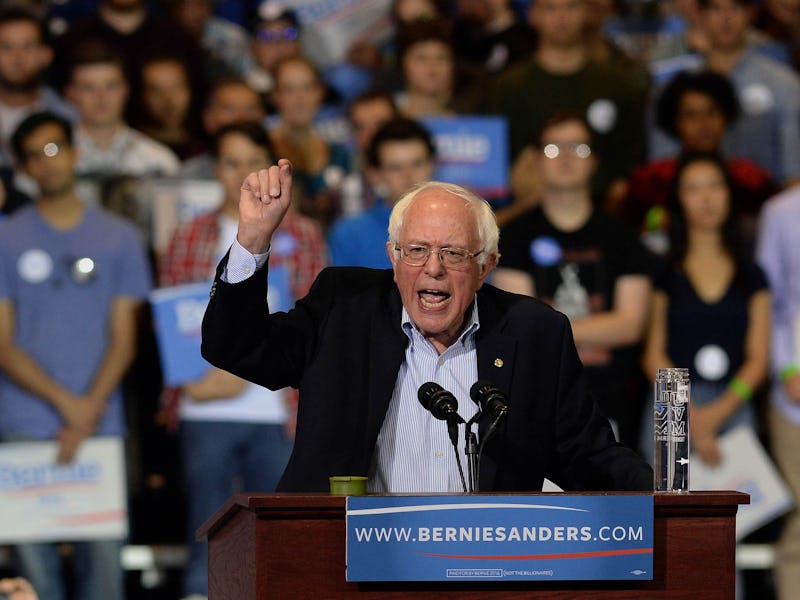Bernie Sanders Becomes First Senator to Officially Propose Federal Marijuana Decriminalization
Introduces the Ending Federal Marijuana Prohibition Act of 2015.

While Bernie Sanders may be hitting the presidential campaign trail hard, he is still one of Vermont’s United States Senators. And Senators introduce bills. This week Sanders proposed the Ending Federal Marijuana Prohibition Act of 2015, which, if passed, would remove marijuana from the list of “Schedule I” controlled substances. A drug qualifies for Schedule I if:
“(A) The drug or other substance has a high potential for abuse.
“(B) The drug or other substance has no currently accepted medical use in treatment in the United States.
“(C) There is a lack of accepted safety for use of the drug or other substance under medical supervision.”
Marijuana doesn’t quite fit that categorization. (Heroin, acid, peyote, and mushrooms are Schedule 1 drugs.)
Although Sanders has come out in support of the legalization of marijuana, his proposed act wouldn’t quite do just that. Sanders’s act would, however, significantly reduce the number of arrests, as well as the severity of the punishment for marijuana possession. Marijuana may be the the star of the bill, but prison population reduction is the goal.
The Ending Federal Marijuana Prohibition Act of 2015 is more of an addendum to the Controlled Substances Act (CSA) than anything. It does not introduce new legislation about marijuana, except to say that it should be excluded from the existing bill — which includes its Schedule I removal.
The only punishable offense in Sanders’ bill is shipping marijuana from a state in which it’s legalized to another in which it’s not: “[The CSA] shall not apply to marihuana, except that it shall be unlawful only to ship or transport…marihuana, from one State…into any other State…when such marihuana is intended…to be received, possessed, sold, or in any manner used…in violation of any law of such State.”
Marijuana legalization continues to be on the mind of forward-looking state legislators. Ohio may have decided to skip on legalization, but the state is missing out on the significant cashflow that Colorado, for example, has seen from regulating weed use. Even Mexico is making its way toward legalization to reduce crime rates, as well as the country’s violent drug war.
Sanders, for now, is not even focusing on the myriad of economic and educational benefits of legalization. Drug arrests ruin lives and are often racially-motivated, a topic on which Hillary Clinton has spoken recently. President Barack Obama, too, has used his powers to reduce the war on drugs. He has commuted 89 prison sentences — many drug-related — since his inauguration, and recently “banned the box,” meaning those who’ve been arrested for felonies are no longer required to tell that to potential employers.
Bernie Sanders is determined to end the United States’ reputation as the nation with the most prisoners in the world. Descheduling and possibly legalizing marijuana is a necessary step in the process.